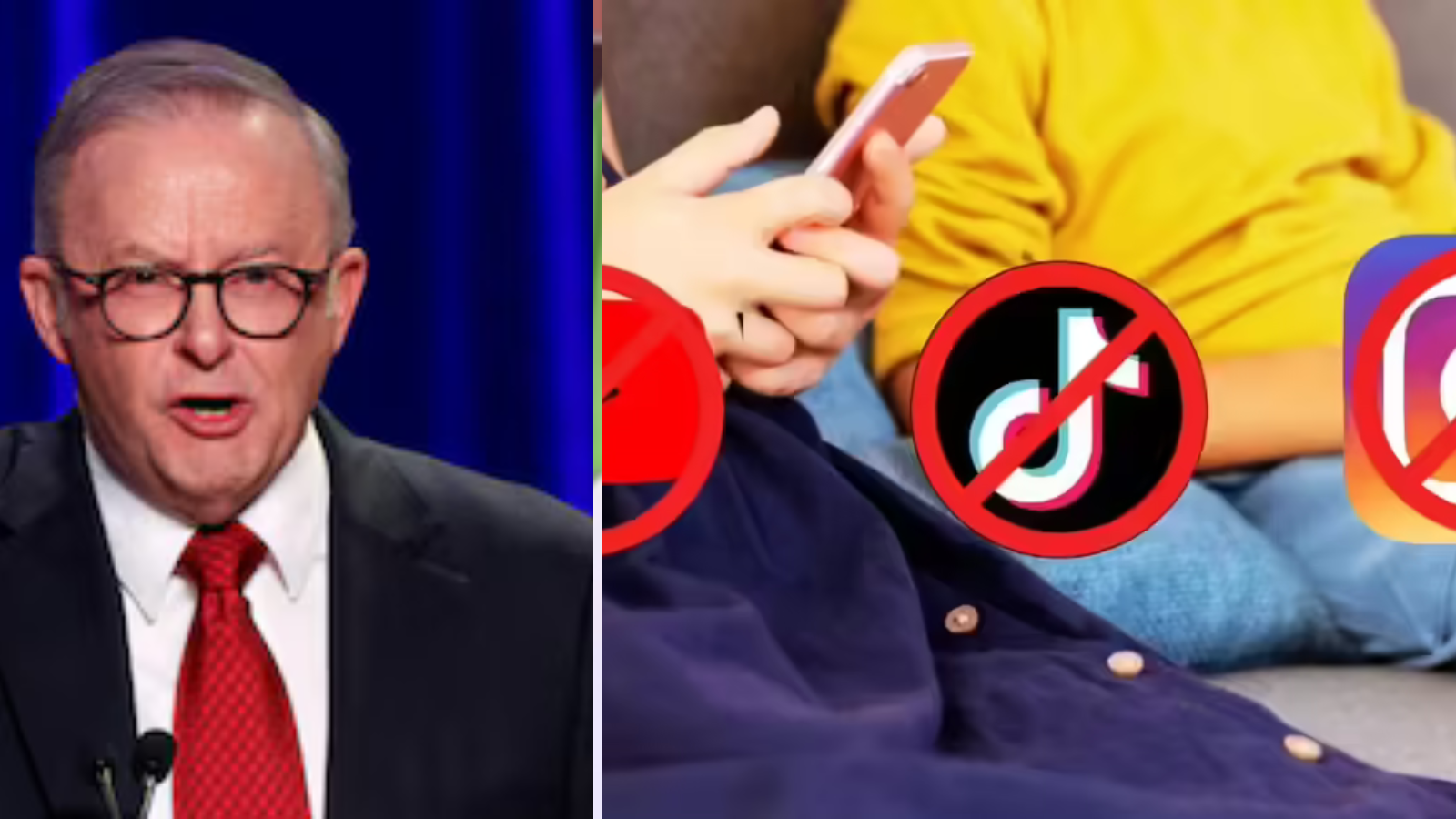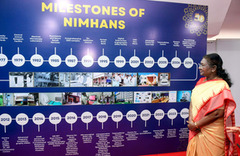Australia Bans Social Media for Under-16s: Will India Take a Similar Step?
Australia has made global headlines by becoming one of the first countries to impose a blanket ban on social media use for children under 16. Announced by Prime Minister Anthony Albanese , the move is being hailed as a landmark effort to protect young minds from the growing risks of digital addiction, cyberbullying, and online exploitation.
Australia’s Bold Online Safety Law
Under the Online Safety Amendment (Social Media Minimum Age) Bill 2024, effective from December 10, 2025, individuals below 16 years of age will no longer be allowed to create or maintain accounts on popular social media platforms such as Facebook, Instagram, TikTok, Snapchat, X, YouTube, Reddit, and Kick.
Prime Minister Albanese emphasised that the measure was taken to protect children from the darker side of the internet. “This is about making sure our kids are safe online. The digital world should not come at the cost of their mental health or development,” he said.
The government believes this law will significantly reduce cyberbullying, exposure to harmful content, and the negative effects of addictive algorithms. Research across several countries has highlighted alarming correlations between excessive screen time and mental health issues like anxiety, depression, poor sleep, and declining attention spans among teenagers.
How Platforms Will Be Regulated
As per the new legislation, all major social media companies will be required to verify users’ ages before granting access. Non-compliance could attract heavy fines, penalties, or platform restrictions within Australia’s digital ecosystem.
Certain platforms, however, will be exempt. These include Messenger, WhatsApp, YouTube Kids, Discord, GitHub, LEGO Play, Roblox, Steam, Steam Chat, and Google Classroom - services primarily used for communication, learning, or entertainment within controlled environments.
Authorities have clarified that platforms seeking exemption must prove they operate in a way that limits harmful content and avoids open social interaction.
Can India Implement a Similar Law?
India, which has one of the world’s largest youth populations, is grappling with similar concerns. With over 250 million minors active on social media, the threat of exposure to inappropriate content, online harassment, and data misuse is rising rapidly.
Experts say that while a ban like Australia’s is possible, India’s vast digital infrastructure and diverse user base pose significant challenges. The government is already exploring updates through the Digital India Act, which includes discussions around age verification systems and child safety frameworks.
Cybersecurity analyst Ritesh Singh noted, “Australia's move is a strong step, but India must first build robust verification systems and awareness programs. Otherwise, a sudden ban could drive teenagers toward unsafe or unregulated digital platforms.”
What Could Change in India’s Digital Ecosystem?
If such a regulation were introduced, it could bring about a major shift in India’s online environment:
However, implementing such a ban won’t be easy. India’s massive internet user base makes enforcement difficult. Issues like fake accounts, VPN usage, and false identity creation could undermine the intent of the law unless strong technological safeguards are put in place.
A Step Toward a Safer Digital Future
Australia’s move signals a significant turning point in how nations approach child safety online. It marks a clear shift from prioritising platform growth to protecting young users’ mental health and well-being.
Whether India follows this path will depend on how effectively it can balance digital freedom with online safety. As global conversations around responsible technology use continue to grow, one thing is certain - the call for safer cyberspace for children is no longer optional; it’s urgent and necessary.

Australia’s Bold Online Safety Law
Under the Online Safety Amendment (Social Media Minimum Age) Bill 2024, effective from December 10, 2025, individuals below 16 years of age will no longer be allowed to create or maintain accounts on popular social media platforms such as Facebook, Instagram, TikTok, Snapchat, X, YouTube, Reddit, and Kick.
Prime Minister Albanese emphasised that the measure was taken to protect children from the darker side of the internet. “This is about making sure our kids are safe online. The digital world should not come at the cost of their mental health or development,” he said.
The government believes this law will significantly reduce cyberbullying, exposure to harmful content, and the negative effects of addictive algorithms. Research across several countries has highlighted alarming correlations between excessive screen time and mental health issues like anxiety, depression, poor sleep, and declining attention spans among teenagers.
How Platforms Will Be Regulated
As per the new legislation, all major social media companies will be required to verify users’ ages before granting access. Non-compliance could attract heavy fines, penalties, or platform restrictions within Australia’s digital ecosystem.
You may also like
- SC initiates suo motu case over Phalodi, Telangana road crashes; seeks NHAI's report
 India makes significant strides to address mental health issues
India makes significant strides to address mental health issues- Kerala: Local Body Polls Scheduled for December 9 and 11, Counting on December 13
- Rajasthan SIR: Barmer, Chittorgarh lead in voter count form distribution
- Anti-Trump bias? Hamas controversy? Why BBC Director-General Tim Davie had to resign
Certain platforms, however, will be exempt. These include Messenger, WhatsApp, YouTube Kids, Discord, GitHub, LEGO Play, Roblox, Steam, Steam Chat, and Google Classroom - services primarily used for communication, learning, or entertainment within controlled environments.
Authorities have clarified that platforms seeking exemption must prove they operate in a way that limits harmful content and avoids open social interaction.
Can India Implement a Similar Law?
India, which has one of the world’s largest youth populations, is grappling with similar concerns. With over 250 million minors active on social media, the threat of exposure to inappropriate content, online harassment, and data misuse is rising rapidly.
Experts say that while a ban like Australia’s is possible, India’s vast digital infrastructure and diverse user base pose significant challenges. The government is already exploring updates through the Digital India Act, which includes discussions around age verification systems and child safety frameworks.
Cybersecurity analyst Ritesh Singh noted, “Australia's move is a strong step, but India must first build robust verification systems and awareness programs. Otherwise, a sudden ban could drive teenagers toward unsafe or unregulated digital platforms.”
What Could Change in India’s Digital Ecosystem?
If such a regulation were introduced, it could bring about a major shift in India’s online environment:
- Tech companies would face higher compliance demands, prompting stricter age checks and content moderation.
- Startups might find new opportunities to develop safe, education-focused social platforms for children.
- Parents and schools would play a more active role in guiding responsible screen use and monitoring online activity.
However, implementing such a ban won’t be easy. India’s massive internet user base makes enforcement difficult. Issues like fake accounts, VPN usage, and false identity creation could undermine the intent of the law unless strong technological safeguards are put in place.
A Step Toward a Safer Digital Future
Australia’s move signals a significant turning point in how nations approach child safety online. It marks a clear shift from prioritising platform growth to protecting young users’ mental health and well-being.
Whether India follows this path will depend on how effectively it can balance digital freedom with online safety. As global conversations around responsible technology use continue to grow, one thing is certain - the call for safer cyberspace for children is no longer optional; it’s urgent and necessary.









